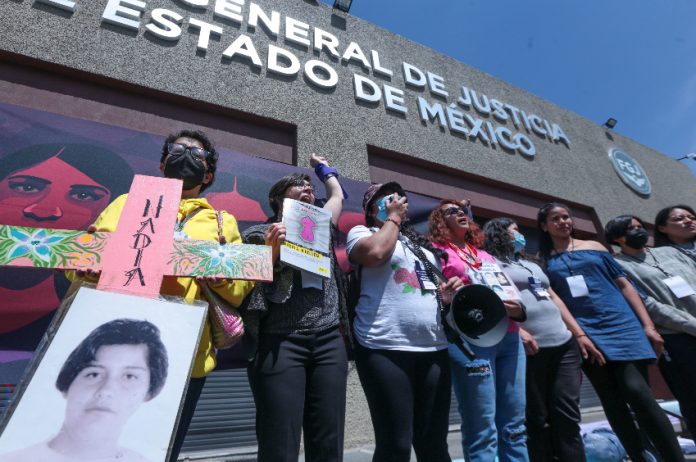In the year 2024, Mexico will celebrate its fourth federal election process as an electoral democracy since the democratic transition of power from the Institutional Revolutionary Party (PRI) party to the competing National Action Party (PAN) in the year 2000, ending 70 years of authoritarian rule.
Not far into its democratic transition, instances of lethal violence and forced disappearance, among other types of violence, began to increase dramatically in Mexico.
Despite being, by all accounts, an electoral democracy, for the last 17 years Mexico has been undergoing what various human rights monitoring international bodies have characterized as a crisis of human rights violations and impunity.
What happens when something that is meant to be exceptional — a crisis — becomes a regular part of the daily operations of public institutions and, more significantly, the everyday lives of the country’s most vulnerable citizens: children, teenagers, women, journalists, human rights defenders and even local politicians?
The causal explanations that have been put forward to address the disconcerting twin reality that Mexico is a democracy and a very violent society are varied. We can find some common ground in at least four of them.
The first is “the tip of the sword:” the intensification, starting with President Felipe Calderón’s 2006-2012 term, of the deployment of military forces and militarized federal and state law enforcement agencies to tackle crime-related issues.
Next is the “uncommon response:” the fact that organized criminal actors fought back with “bullets and bribes.”
The third explanation is the opportunity factor — the increase in the availability of illegal weapons flowing from the United States to Mexico due to relaxed gun control policies in the northern neighbor, providing more and deadlier tools to fight these fights.
Lastly, violence can also be partly explained by the paradox of local democratization itself in fragile contexts, where increasing democratic competition has tended to destabilize collusive arrangements between the state and organized crime, leading to large-scale criminal violence.
Against this backdrop, Mexico is entering the 2024 national election process. Here, I want to highlight two approaches in projects stemming from the work of Justicia Transicional en México (JTMX), the think-and-do tank on impunity issues in the country that I have led for the last two years.
The first approach takes place on the micro, or local, level. By partnering with the Guernica Centre for International Justice to document and trace trajectories of violence in parts of a specific state in the country — Nayarit — for a relatively protracted period (2011-2021) we have gained a degree of, albeit superficial, understanding on how violence unfolds and operates in local realities.
Put briefly, in many realms of the country, violence establishes the real rules of the game and the resort to it coalesces private, public and illegal interests. The exercise of citizens’ rights is heavily restricted in these terrains. That should concern us.
Second, at the macro or national level, a recent study by JTMX explores institutions established since 2013 to address aspects related to impunity in gross violations of human rights.
These include national systems like the National Search Commission (CNB), established in 2017, and Executive Commission for Attention to Victims (CEAV), founded in 2013, as well as presidential commissions addressing specific situations, like the 2018 Ayotzinapa truth commission and the 2021 commission on human rights violations committed from 1965 to 1990, during Mexico’s “dirty war.” It goes without saying that these institutions are merely the culmination of claims from victims and movements seeking improved institutional tools to address their demands for redress.
However, despite partial solutions — and even with greater support from the federal government on some issues, such as addressing disappearances — their promise has begun to fade, as exemplified by a questionable strategy to reduce reported disappearance numbers.The intertwining of impunity with the country’s political system raises questions about the commitment of the three presidential candidates to address impunity: the elephant in the room. This year will be key. And time is pressing.
This article was originally published by The Mexico Institute at the Wilson Center
Jorge Peniche Baqueiro is a specialist in issues related to combating impunity and transitional justice. He previously served as the Executive Director of “JT MX. Justicia Transicional en México” (JT MX), a think and do tank that, since 2019, has been providing technical support to local and grassroots processes seeking truth and justice for gross human rights violations across Mexico.
Disclaimer: The views expressed in this article are solely those of the author and do not necessarily reflect the views of Mexico News Daily, its owner or its employees.
